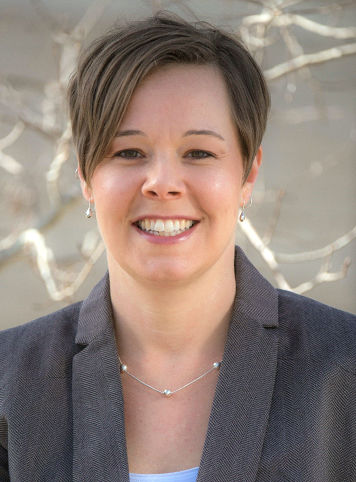
Robin Kniech
Imagine a Colorado where local communities have more policy tools to meet our unique rental housing challenges. Where we can ease the burden for working family residents struggling to make housing ends meet and ensure that new development houses more of those families than it displaces.
Each Colorado community is unique. The median price to rent an apartment in Denver (population 705,439) is currently $1,313.94. In Alamosa (pop. 8,780) it’s $663.41, and in Colorado Springs (pop. 416,427) it is $1,065.88. But because of wage stagnation and the rising price of housing, no matter how different they are, these prices are out of reach for too many residents. Specifically, more than 365,000 residents throughout our state can’t afford their housing right now, not to mention accommodating those on their way to Colorado to fill our still-expanding job market.
We take such pride in our state as a booming place to live, work and raise a family — but for an increasing number of folks, that boom has brought pain rather than benefit. And we are stuck with a statewide prohibition of local housing policies that has cuffed one hand behind the back of local officials. We have been raising local taxes and fees to help meet local housing demand the best we can. Expanded state tax credits and funding help us too. But there’s only so much we can do when we can’t pass local policy on rental housing.
It doesn’t have to be this way. Colorado has the opportunity to take off the handcuffs and let local communities create local approaches to give more residents access to housing they can afford. SB19-225 was introduced this past year and would have done just that, return local control over rental housing policy. It would have allowed local governments and elected officials to make local decisions. It received only a single hearing in the state senate.
The good news is, Colorado is already leading the way in confronting a growing misuse of “preemption” in state legislatures — sweeping state measures that take power away from local communities, leaving us with our local challenges but fewer tools to battle them. According to a new report by the Local Solutions Support Center and the State Innovation Exchange, Colorado made history by overturning the long-standing ban that prevented local municipalities from raising minimum wages, and other measures like allowing local tobacco regulation. Local elected officials across the country are working together through a national network, Local Progress, to identify the harm pre-emption policies cause to our residents and communities and to partner with our state elected officials to reverse this harmful practice.
The restoration of local control over minimum wages is admirable and important — but our lawmakers can and must go further and pass legislation that allows us to live up to our state’s values of equity and fairness in the area of housing too. Colorado’s ban on rent regulation was born 40 years ago in response to one city’s attempt to slow the rising cost of housing, and if it hadn’t been stopped in its tracks by the state, Boulder wouldn’t be as unaffordable as it is today. Cities tried to adapt, to ensure that developers profiting from our great quality of life and public investments like open space would help contribute a modest number of affordable homes to our communities along with their new market rate units. But powerful businesses interests used the state’s law to take that tool away too. In Denver alone, if we had been able to use inclusionary housing policy over the past 10 years, we would have nearly 6,000 more affordable rental homes than we have today, easing the burden faced by 20% of our cost-burdened residents earning around $50,000 for a family of three.
If a bill like SB19-225 were to pass in the 2020 session, local housing policy wouldn’t change overnight. Interested cities would conduct economic analysis to find the right balance between the needs of our working family residents and the prices and costs of our local market. And we understand the necessity and value of robust public input to ensure all stakeholders have a voice as policy is shaped. The state of Colorado could never craft a single policy for every diverse community across the state, or host a stakeholder process in each. But interested communities can do this work, and Colorado’s legislature can take action to ensure we have the opportunity to explore it. Communities that are not interested could exercise their choice as well.
I stand with the following colleagues on the Denver City Council and from across the region who have signed on to work as partners with our state legislature to tackle local control for housing policy, so that we can be better public servants to our suffering communities: Denver Councilmembers Candi CdeBaca, Chris Hinds, Stacie Gilmore, Paul Kashmann, Debbie Ortega, Amanda Sandoval, Amanda Sawyer, Jamie Torres; Adams County Commissioner Eva Henry; Boulder County Commissioners Elise Jones and Deb Gardner; Broomfield City Councilmembers Guyleen Castriotta, Deven Shaff, and Sharon Tessier; Lafayette City Mayor Pro Tem Jamie Harkins; Lakewood City Councilmember Jacob LaBure; and Summit County Commissioner Thomas Davidson.
Robin Kniech is an at-large member of the Denver City Council.









(0) comments
Welcome to the discussion.
Log In
Post a comment as Guest
Keep it Clean. Please avoid obscene, vulgar, lewd, racist or sexually-oriented language.
PLEASE TURN OFF YOUR CAPS LOCK.
Don't Threaten. Threats of harming another person will not be tolerated.
Be Truthful. Don't knowingly lie about anyone or anything.
Be Nice. No racism, sexism or any sort of -ism that is degrading to another person.
Be Proactive. Use the 'Report' link on each comment to let us know of abusive posts.
Share with Us. We'd love to hear eyewitness accounts, the history behind an article.